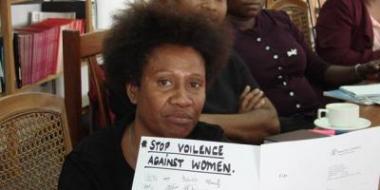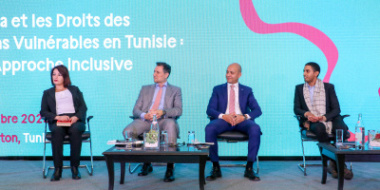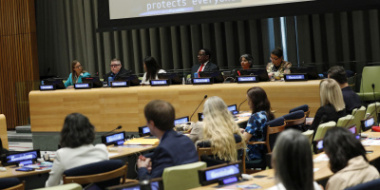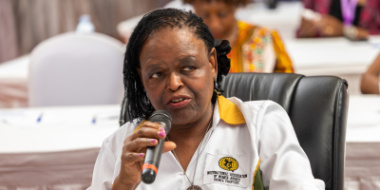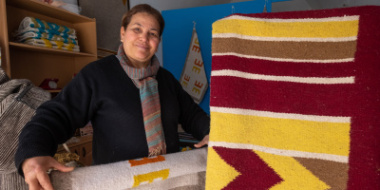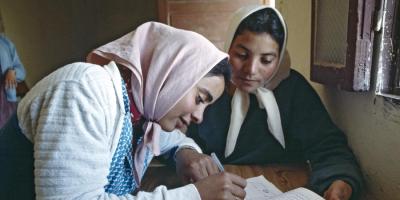
Tunisia adopted its first national procedure manual for women’s shelters, as a result of IDLO’s program to enhance women’s protection against gender-based violence. This work was made possible by funding from the Government of Italy.
The manual outlines uniform guidelines for shelters in the country as they deliver legal services to women and children survivors of violence, and was endorsed by Tunisia’s Ministry of Women, Children and Family (MoWFC) in August 2020 as an official legal text.
IDLO supported the development of the manual as part of its program activities, which included national workshops to discuss best practices and set standards for the management of both new and existing shelters.
Tunisia is widely regarded as a regional model with an active civil society championing the advancement of women’s rights. In 2017, the country passed a landmark law to combat violence against women, signifying an historic gender equality milestone just three years after the adoption of its 2014 Constitution. The law encouraged the opening of new shelters as another means to provide protection for women seeking refuge from violence.
The endorsement of the procedure manual as an official document is another example of the progressive series of gains towards women’s e to justice in the country.
At the same time, the COVID-19 pandemic has exacerbated risks for women and made many more susceptible to violence while under lockdown. Between 23 March and 31 May, 9,800 calls requesting emergency shelter services were recorded on the country’s toll-free helpline numbers– nine times higher than usual.
Of these 9,800 calls, 2,700 represented violence cases and the many of the other calls were received from women with pending court cases or in need of financial and material assistance, bringing renewed significance and urgency to the shelters’ work.
The shelters serve not only as protection centers for women survivors of gender-based violence, but they also offer legal services, education, and support for the socioeconomic reintegration of women into society.
Most shelters in Tunisia are operated by civil society organizations, and before the guidelines were in place there was a lack of uniformity in the application of best practice and adherence to government standards.
With the new manual officially endorsed by the Ministry, there is now a mechanism to ensure quality service delivery across all shelters in operation. Going forward, IDLO will help shelters to apply guidelines laid out in the manual to address the critical needs of women, including new cases emerging from the pandemic.
IDLO has been working in Tunisia since 2011 on a broad portfolio of programs that ranges from institutional capacity to negotiate investment trade agreements, women’s professional participation in the justice sector, judicial training on intellectual property, women’s access to justice and enhancing protection against gender-based violence.
Photo credit: © UN photo



